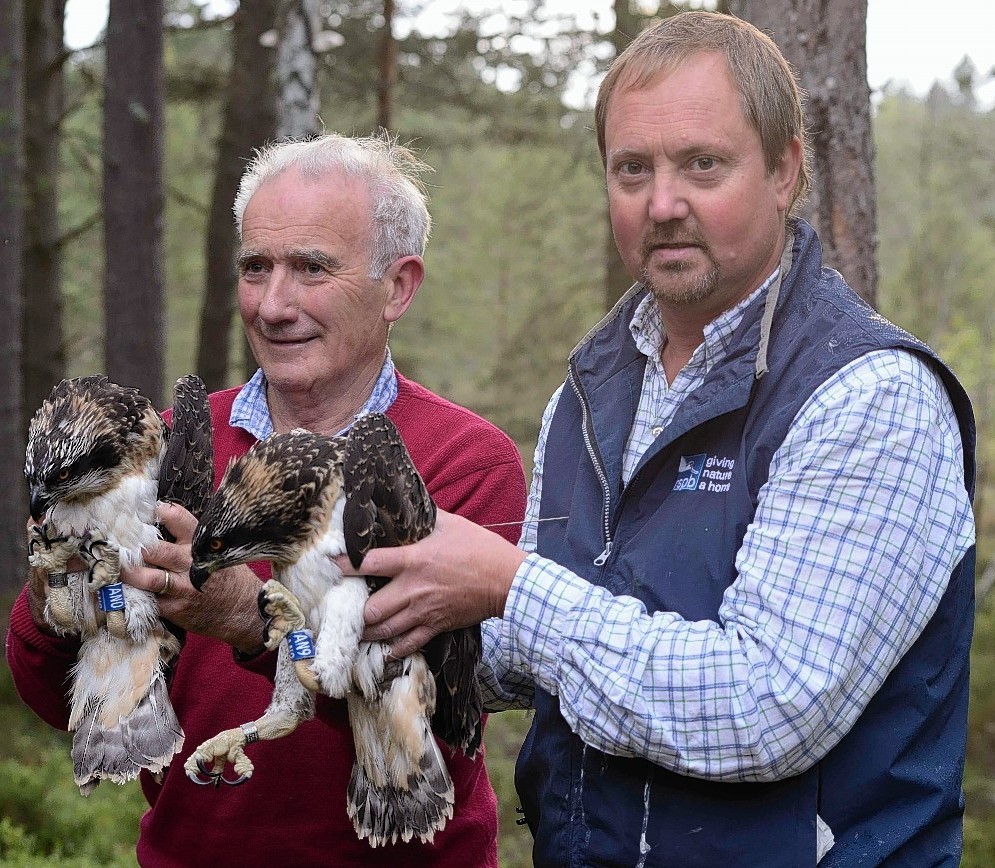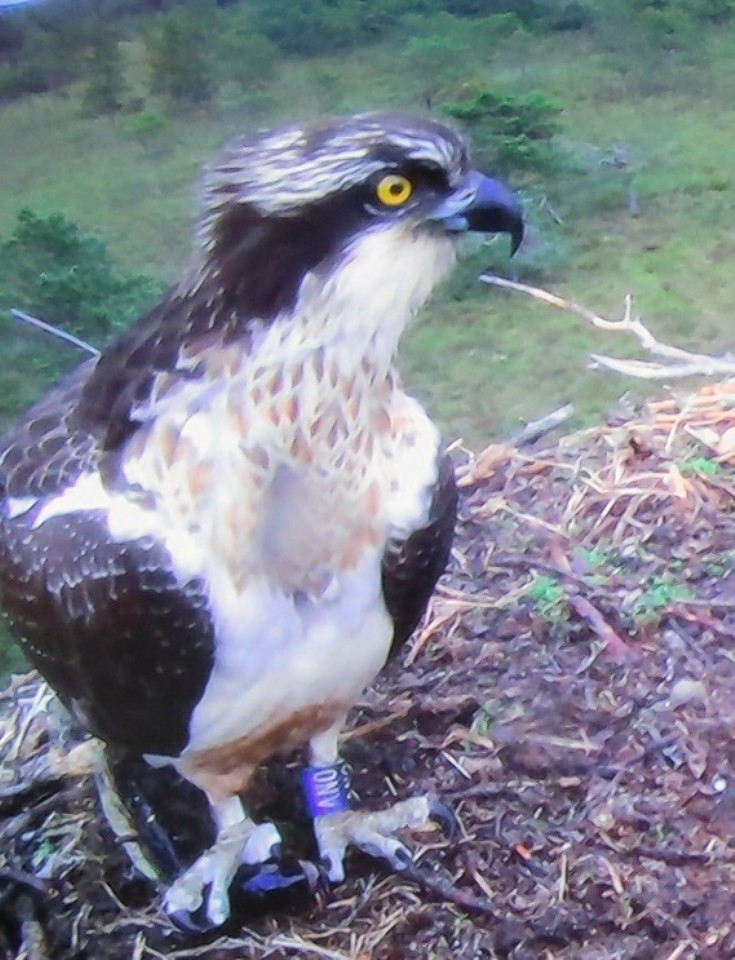The historic 100th chick to fledge from Scotland’s most famous osprey nest has died in West Africa.
The chick, named Millicent, was fledged at the RSPB’s Loch Garten Reserve, near Inverness, on July 12 last year.
The bird was the oldest of three chicks hatched by resident female EJ and her partner Odin.
Her fledging was hailed as “an astonishing milestone” for the reserve, exactly 60 years after the magnificent birds returned to Scotland at the site.
She was being tracked in Africa using GPS technology, but yesterday her followers were told she was presumed dead, as there had been no movement from her position in Guinea since earlier this month.
Jen Clark, the reserve’s osprey information officer, said: “Sadly, her position has not changed from then and so unfortunately we can only assume that she has died.
“I’ve been privileged enough to watch EJ and Odin raise and nurture their chicks from egg to fledgling for three osprey seasons.
“From wet seasons, like 2012 when we lost a chick on the nest, to eggs being kicked out in 2013, these young birds have a tough ride from the start, and you can’t help but get attached to them as you watch them overcome the hurdles that life throws at them.”
Ms Clark also announced that Millie was one of the last chicks they would be tagging and following on their journey south.
The exercise was launched in 2008, and although tags cost around £3,500, they have proved invaluable in uncovering the mystery of where the raptor spend their early years.
It has also confirmed that mortality rates in juvenile ospreys is high – with only one of the birds tagged by the Loch Garten team surviving.
Ms Clark said: “After six years of tagging we have learned all that we are likely to and further tagging, which is an expensive project, will give us minimal new science.
“We had already reached the decision not to tag any young in the season ahead and beyond, and this latest news of another loss only reaffirms our thinking.
“Having made the decision to not continue tagging, we will direct our resources at birds of prey that are subject to illegal persecution.
“Although it is exciting to be able to track our youngsters once they have left us, it is sometimes better not to know and leave a bit of mystery.”

